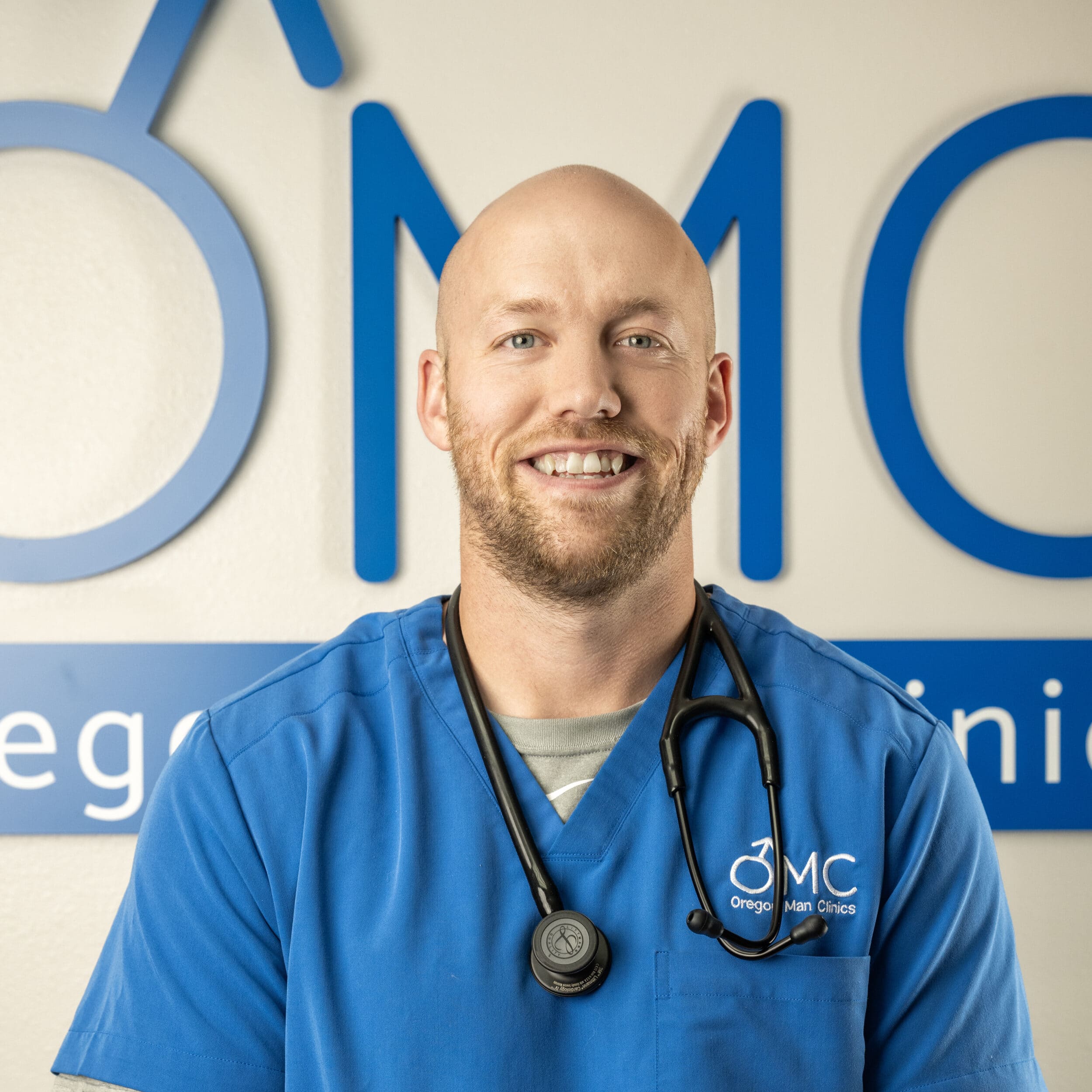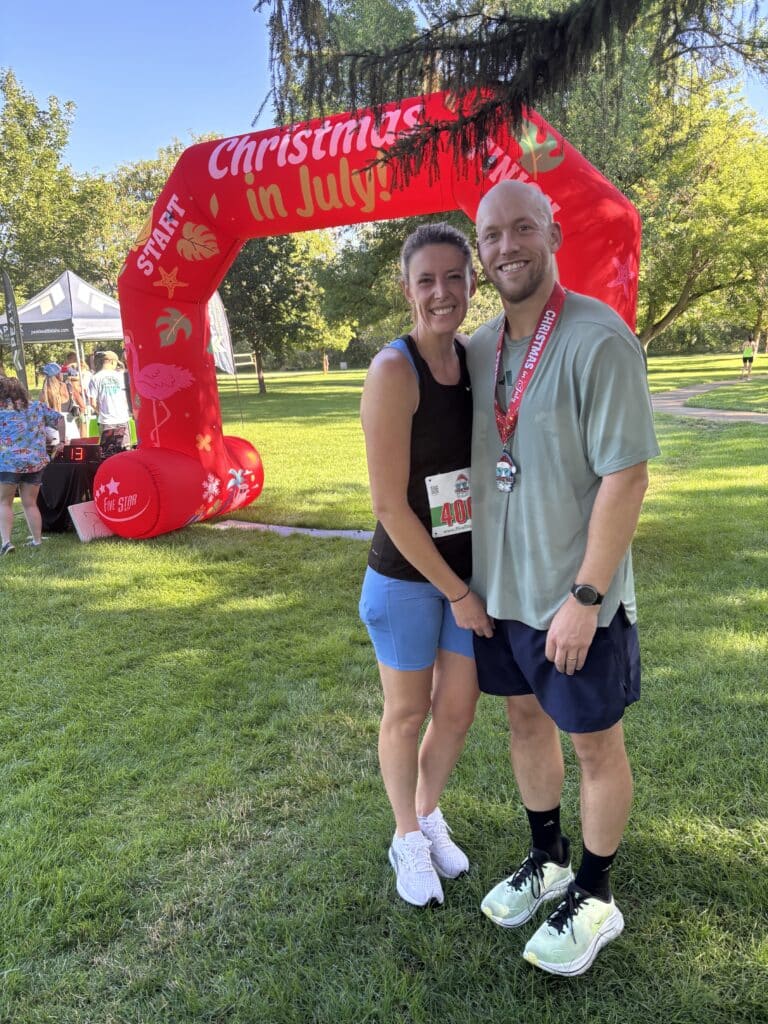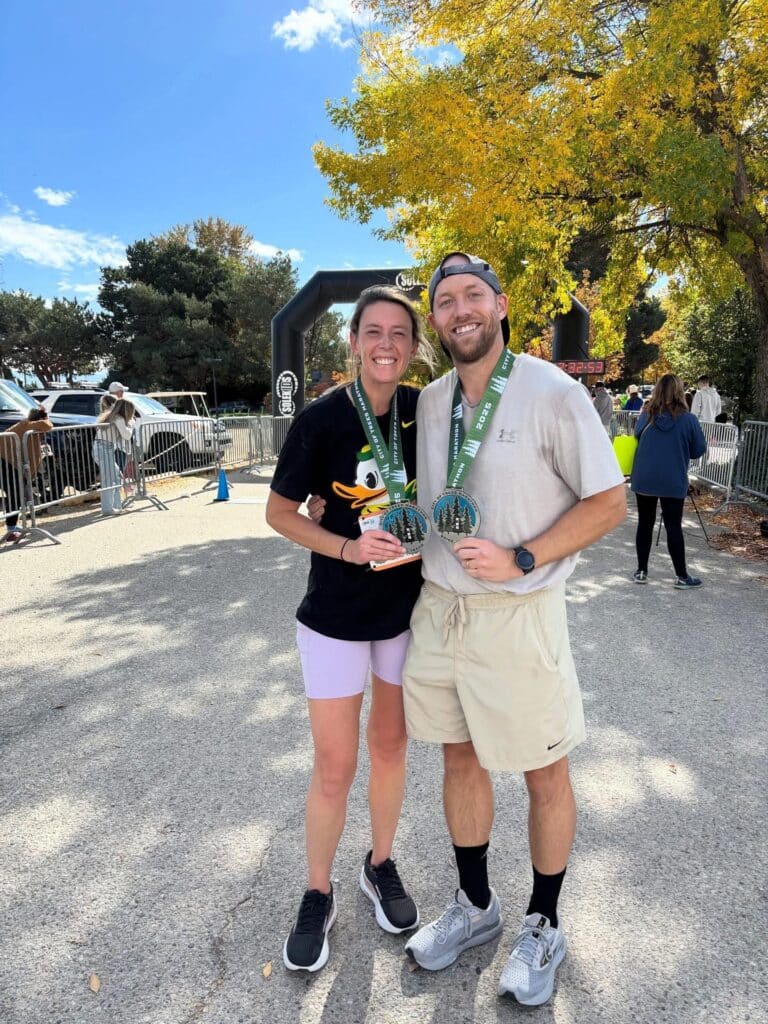
At OMC, we believe that your health journey is a marathon, not a sprint. We sat down with our very own marathon finisher, Tyler Rice, FNP, to discuss how his intensive training reflects the proactive health philosophy he promotes daily in the clinic. Tyler and his wife recently conquered the 26.2-mile distance, providing powerful insights into fitness, prevention, and the crucial role of hormones.
The Personal & Professional Connection: “Go One More”
The Power of Exercise and Partnership
Tyler believes exercise is foundational to preventative care, telling patients, “One of the best kinds of medicine to promote longevity and preventative health maintenance is exercise. I want all patients to recognize exercise as important.”
Running the marathon with his wife was a literal example of his philosophy on life and health:
“It is rewarding to have a wife who is able to exercise with me and make goals with me… We both wanted to stop at mile 20 [during a long run], but we were able to encourage each other to finish the run. If I had not been with her, I believe I would have stopped the run early.”
Tyler adds: “Exercise is a keystone to our general health but also to our relationship… I encourage my patients to not only better themselves, but to also include their partners on their health journey.”
Hormones, Recovery, and the Myth of Sleep
As an FNP, Tyler emphasizes the importance of endocrine health, focusing on the trio of sleep, exercise, and nutrition.
- Sleep: “There is a saying that people use that I don’t necessarily agree with: ‘I will sleep when I am dead.’ The problem with this saying is that less sleep results in a shorter life. Getting an average sleep of 7-8 hours a night is important for recovery and rest.”
- Proof in the Labs: Tyler practiced what he preached, logging “141 consecutive days of 10K steps or more.” When he checked his labs mid-training, “The results were the best I have seen them since college, over a decade ago.”
- Testosterone’s Role: He stresses that Testosterone is a key player in health and exercise. When levels get low, “our ability to exercise becomes more difficult. Motivation tends to decrease and maintaining muscle mass becomes more challenging with lower levels.” That’s why he encourages men, especially over 40, to check their levels if they experience fatigue, low libido, or decreased motivation.

The Importance of Fitness & Prevention
The Best Biomarker: Heart Health
When asked for the single most important biomarker that benefited from his training, Tyler pointed to his cardiovascular health:
“Heart rate/VO2 max. My resting heart rate is now typically in the 40s or lower 50s (normal average range 60-100 bpm)… VO2 max is an important indicator of aerobic fitness, cardiovascular health, endurance capacity, and athletic performance.”
Clinical Advice: Start with the Mind
For a man wanting to run a marathon after years off, Tyler advises: “Mentally prepare yourself.”
Referencing ultra-marathoner David Goggins and the phrase “Go one more,” Tyler emphasizes the mental hurdle: “Putting on my running shoes and walking out the front door was half the battle.”
Motivation from the ER
Tyler’s years in the Emergency Department solidified his focus on prevention:
“I have experienced traumas, cardiac arrests, and respiratory emergencies… but visiting with patients struggling with chronic health conditions is also motivating… About 90–95% of Type II Diabetes is self-inflicted, meaning that it developed from poor diet and lack of exercise. My goal as a provider is to keep patients from developing the severe disease progression from diabetes.”

The Marathon Experience
Tyler learned a few critical lessons during his marathon:
- Race Day Goal: “My race day goal was to finish. I also wanted to be around 4 hours.” He advises pacing yourself: “I did push myself the last 13.1 miles with quicker paces and faster times but I did not want to push to early and crash at the end or not finish.”
- The Biggest Lesson: “Do not forget your running shoes.” (He had to run the race in an old pair!)
- The Final Accomplishment: “I am glad that my wife and I could do this together… Statistically, less than 1% of the world’s population will finish a marathon. I’m glad I was able to share
